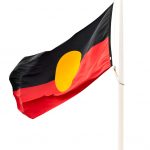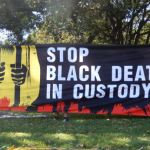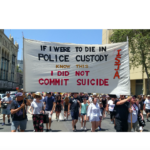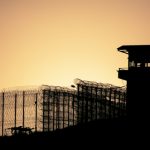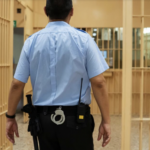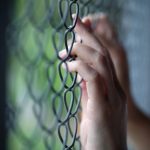Young First Nations Man Left Untreated After Being Bashed by Prison Guards at Long Bay
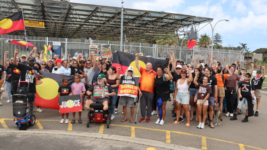
A young Aboriginal inmate was allegedly bashed by Corrective Services NSW immediate action team officers at Long Bay Correctional Facility on 25 January, after he’d been repeatedly gassed in his cell in the days leading up to the incident.
Elyas Dargin sustained head lacerations and a broken eye socket, as well as cracked ribs and a broken ankle, due to the prison guard assault. However, his family weren’t immediately contacted, but rather the injured man was left alone in his cell to recuperate without any medical treatment for days on end, and he neither ate during this period.
Indeed, the Dargins only received word that their loved one was lying injured in his cell after his mother was contacted by one of Elyas’ friends from inside the prison, at which point she learnt that not only had her son been wounded and left without treatment, but she found that he’d since been sleeping on the floor without a mattress or pillow, with just the aid of a blanket.
The Dargins gathered outside Long Bay Gaol last Saturday, 1 February, at noon, as part of a protest organised by Wiradjuri man Uncle Dave Bell and Dunghutti man Paul Silva, who are both part of The Blak Caucus, a First Nations political group.
Around 100 protesters marched up Anzac Parade towards the entrance of the notorious Long Bay Prison, which is situated on Bidjigal and Gadigal land in the Sydney suburb of Malabar, before moving on to the correctional centre’s carpark in front of its main gates to signal that there are people well aware of the unreported incident that are seeking justice for Elyas and an end to such brutalisation.
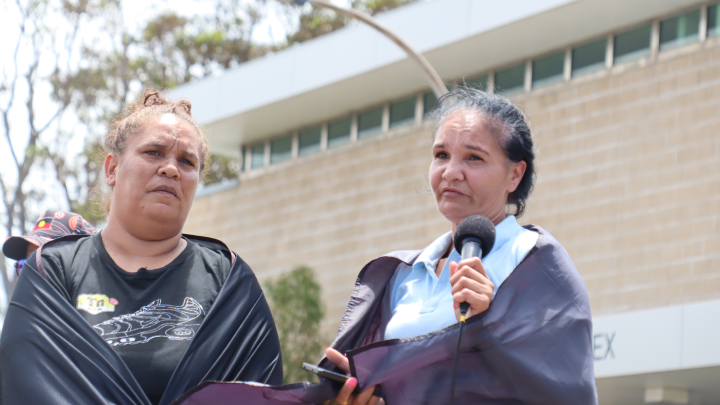
Targeted on the inside
“Once Elyas was aware that he was on the truck to Long Bay, he mentioned to his partner that he didn’t want to go to Long Bay,” recalled Aunty Casey Dargin, “as the officers are known for their brutality.”
“Since being in there, he has been treated unfairly. He fears for his safety and his life more than anything,” Elyas’ aunty continued, over a microphone out the front of Long Bay Prison, as her nephew continued to be held inside beyond the prison walls.
“They denied him medical treatment after they assaulted him. He didn’t have a mattress in his cell, and he’s worried that he will not make it home to his 5-month-old son Elyas Junior.”
As she stood beside her sister Aunty Rickie Dargin, Casey further explained that the attack that occurred on 25 January was not the start of her nephew’s troubles, as, over the days prior, Dargin had been repeatedly gassed through the vents in his cells, which required him to then wet his shirt in toilet water and put it over his head so he could breathe.
The dozens of supporters standing in front of the prison were further told that Dargin has been persecuted in other NSW correctional facilities as well, outlining that the young Aboriginal man had been beaten at Bathurst prison last year, prior to being transferred to Lithgow Gaol and then onto the facility in Kempsey.
“Elyas was calling me, and I could tell the scaredness in his voice when he was ringing,” Casey Dargin further set out last Saturday. “He was meant to call me on Monday, but he didn’t call, and once he didn’t call, I knew something was wrong.”
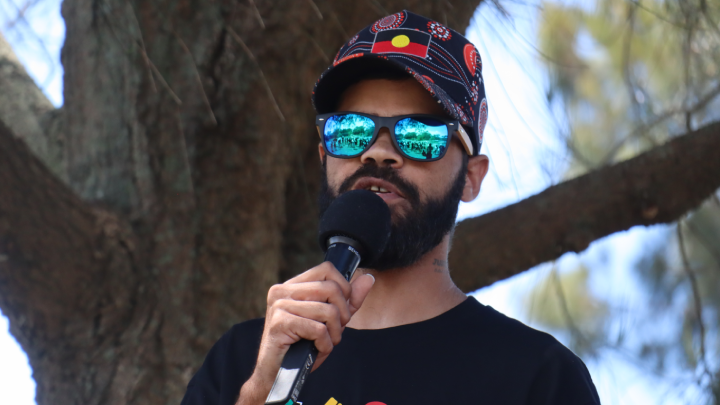
No change ten years on
“I’m here to stand with the Dargin family in regard to the ongoing brutalisation that goes on behind these prison gates we’re standing beside,” said Dunghutti man Paul Silva. “Unfortunately, Aboriginal people in 2024 have significantly jumped in terms of high rates of incarceration, along with Aboriginal people being killed in custody.”
“We are all standing here today to demand a stop to the brutalisation of our people and also the non-Indigenous people as well. They are brutalising family members,” he said to the crowd of protesters.
“For me personally, my uncle, David Dungay Junior, was killed in this facility. He was held down by officers and despite his saying that he could not breathe, they then sedated him with 10 milligrams of midazolam and 30 seconds later he took his last breath and died.”
David Dungay Junior died as five immediate action team guards pressed down on his back as he was held face down on a bed in the potentially fatal prone position, and he called out that he could not breathe a dozen times.
David was killed in the hospital wing of Long Bay Gaol on 29 December 2015, at the hands of the same type of specialist guards involved in the Dargin incident. These guards had set upon Dungay, a diabetic, because he was eating a packet of biscuits.
As Silva pointed out, the disproportionate rate that the First Nations peoples of this continent are being incarcerated at is stark. The latest ABS custody figures reveal that of 44,316 adult prisoners in the Australian prison system over the last September quarter, 15,711 were Indigenous adults, which made up 35 percent of the overall prisoner numbers.
However, Aboriginal and Torres Strait Islander people only account for 3.9 percent of the overall populace of this country.
“This is a prime example that brutalisation is continuing,” Silva made clear. “Ten years on and we are still seeing that the system is targeting First Nations people.” And he added that Dargin has not only been targeted in Long Bay but in other facilities as well.
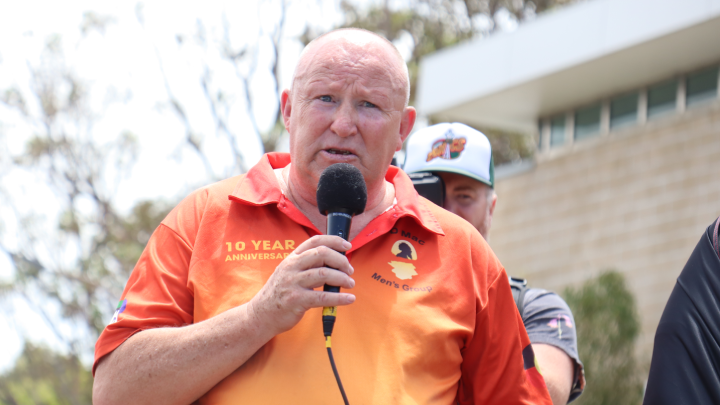
A racist unjust system
As an example of how NSW correctional facilities are off-limits to regular societal checks and balances, and hence, exist as closed environments that are open to human rights abuses, Uncle Dave Bell pointed to the 2022 official visit of the UN Subcommittee on the Prevention of Torture (SPT), which was supposed to inspect facilities in this state and elsewhere across the country.
The SPT was to inspect local facilities in line with the provisions of the OPCAT (Optional Protocol to the Convention Against Torture), which is a system that ensures human rights are upheld in prisons. The SPT was denied entry into a court-connected correctional facility at Queanbeyan, and so reluctant did it find local authorities to its presence, that the body cut its trip short.
Due to the unaddressed racism and accompanying brutalisation within the Australian criminal justice system, 585 First Nations deaths in the custody of police or corrections officers have transpired, since the Royal Commission into Aboriginal deaths in custody handed down its final report in April 1991.
However, no police officer or prison guard has even been convicted in relation to any of these custodial deaths.
“The Dargin family weren’t notified for days,” Bell set out. “This boy wasn’t getting treatment. So, this is what we are saying, the system is inhumane to Aboriginal people and other people that come through this system.”
“These gaols are all about profit. They don’t care about the individual. They don’t care about the inmate,” the Wiradjuri man said in ending.
“They call it corrections, but where are the corrections here?”


